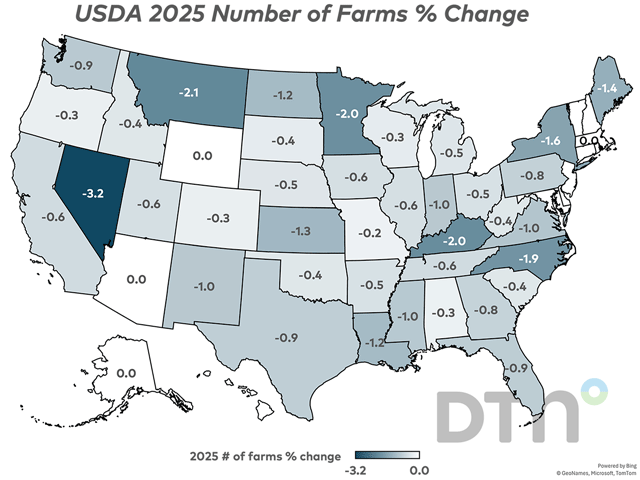DTN Oil
Oil Futures Slip on Potential Restart of Iraqi Exports
WASHINGTON (DTN) -- New York Mercantile Exchange oil futures and Brent crude traded on the Intercontinental Exchange were mixed in early trade Friday, although all petroleum contracts were heading for the fourth consecutive weekly loss amid reports suggesting Iraq is preparing to resume oil exports through the Turkish port of Ceyhan this weekend, returning some 450,000 barrels per day (bpd) of shuttered oil flows to the global market.
The Iraq National Oil Company (INOC) has officially asked Turkey to restart its pipeline connecting the port of Ceyhan on the Mediterranean cost with the oil-producing region of Kurdistan in Northern Iraq, authorities said Thursday. The Turkish government has yet to issue a response or comment on the news. Ankara stopped receiving oil exports from Kurdistan in March after the Paris-based International Chamber of Commerce ruled that Turkey owed Iraq $1.5 billion for receiving unauthorized exports between 2014 and 2018. The oil exports from the Kurdistan Region to Turkey were expected to begin in April following the trilateral deal, but Turkey has not given the green light to exports.
P[L1] D[0x0] M[300x250] OOP[F] ADUNIT[] T[]
The halt of oil flows is threatening the Kurdistan Region's oil sector due to the lack of storage capacity in the region. Norwegian oil company DNO -- one of the operators in the region, said Thursday it will reduce operations in Kurdistan amid uncertainty of the dispute with Turkey.
"Given the uncertain timing of export resumption and, importantly, of payments by the Kurdistan Regional Government for previous oil sales, DNO has scaled back [spending] in Kurdistan, including drilling," the company said in a statement.
The stoppage of Kurdish oil flows has depressed production volumes from the Organization of the Petroleum Exporting Countries last month, according to OPEC's Monthly Oil Market Report. OPEC showed its collective oil production fell by 191,000 bpd in April to 28.6 million bpd just as some of the group's largest producers have started production cuts aimed for May. The drop off in production pressed Iraqi crude production 292,000 bpd below its voluntary quota established in October 2022, and 81,000 bpd less than its quota that took effect this month.
Nigeria, Africa's largest oil producer, reduced oil production by 170,000 bpd in the reviewed month to 1.18 million bpd, with output under pressure from vandalism and a lack of new investment in the sector.
Russia, meanwhile, which is allied with OPEC, appears to have maintained its output despite saying earlier this year that it would reduce production by 500,000 bpd. As part of the Saudi-led action, Moscow said it would extend those cuts until the end of the year.
On the demand side, OPEC left its oil consumption growth outlook for this year unchanged at 2.3 million bpd, with nearly all the growth to come from countries that are not part of the Organization for Economic Cooperation and Development. OECD oil consumption is projected to grow by a modest 100,000 bpd. Within the regions, slight downward adjustments for OECD in the first quarter were offset by upward revisions for non-OECD.
Near 7:30 a.m. EDT, NYMEX West Texas Intermediate June futures edged higher to $71.13 barrel (bbl), up by $0.28 bbl, while ICE Brent July futures added $0.19 to $75.18 bbl. NYMEX RBOB June futures retreated $0.0065 to $2.4512 gallon, and the front-month ULSD contract dropped $0.0131 to $2.3364 gallon.





